“Yes, I see. And tell me, how does that make you feel? Do you think that has anything to do with how your father spoke to you as a child? Let’s dive deeper into your relationship with your parents.”
Being in therapy can be life-changing for individuals who are carrying past trauma through the world with them. Finally, there's a safe space to get everything off your chest without worrying about being judged. But have you ever considered what the experience of therapy is like for your friends or your partner?
Mental health professionals have been opening up on Reddit about the differences they’ve observed between their male and female clients, so we’ve gathered some of their replies below. From how each gender handles anger to how willing they are to dive into painful topics, enjoy reading through this insight from therapists. And be sure to upvote the info that helps you understand others better.
#1
Men frequently schedule their first appointment because their wife or girlfriend strongly encouraged it. It’s more rare for them to reach out of their own volition.
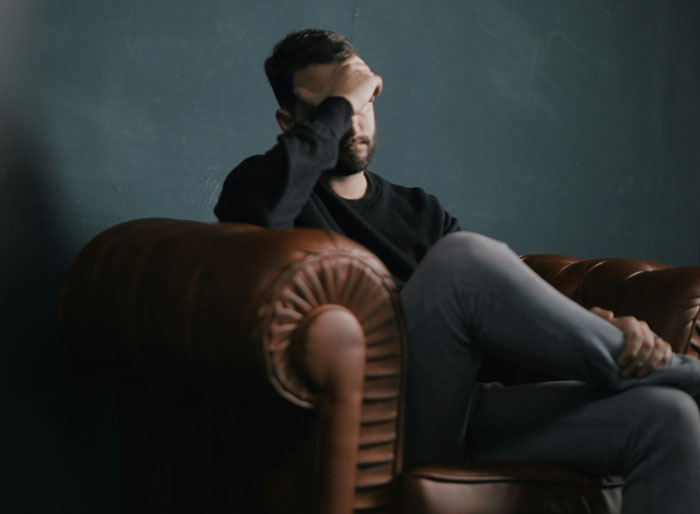
Image credits: revolutionutena
#2
For me, men opened up faster. The first visit or two might be super limited and then the floodgates open all at once. The women are more open at the start, but drop big details ways slower.

Image credits: therealcherry
#3
I was a therapist for people with psychosis and schizophrenia if that counts?
Men were more likely to have God delusions. (I am god, or God speaks to me)
Women were more likely to have romance delusions. (Michael Jackson speaks to me, I'm Mary and I'm pregnant by a miracle)
Both had pretty equal amounts of dissociative issues. (This world isn't real, humans are being replaced by zombies, you aren't my mom).
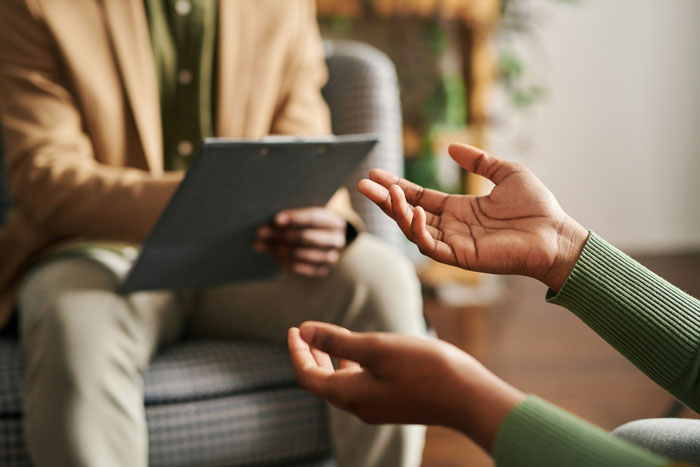
Image credits: goog1e
To find out how this conversation started in the first place, we got in touch with the Reddit user who invited therapists to share what the differences they've noticed between men and women.
"I've had a lot of conversations with friends about what our therapists must think of us," the author says. "I had recently gone through a breakup with a very nice but troubled man who was planning to go to the therapy and the topic drifted to wondering if men and women approached therapy differently, and if therapists had noticed a difference."
The OP also noted that therapy has generally been helpful for them, but they've had "a mix of good and average therapists."
#4
Older men will often complain of physical pain when they really have depression.

Image credits: Adoptafurrie
#5
Twenty years ago gender differences in therapy was an area I researched.
A couple of general differences was a tendancy for males to under-represent - so they'd say they weren't feeling as bad as they were, or that they were satisfied with the therapist when they weren't - or happy with them when only moderately satisfied. The other very general point was that males presented less verbally than females.
Alexithymia was also much more common in males - that inability to identify emotions and therefore to explore them without professional support was absolutely crippling for many. (This was observed in session rather than as part of traditional/ structured research).

Image credits: meyeusername
#6
I have learned that men need support and encouragement to thrive. Constant criticism is hard on a man, it causes him to lose his confidence and in that situation he has a hard time relating to his partner.
Women on the other hand need attention. They need to feel seen and heard. They don't need to be understood as much as they need to feel heard. Women don't usually accept excuses. They want acknowledgment. When a woman is not feeling seen or heard. She doesn't feel loved and has a hard time relating to her partner.
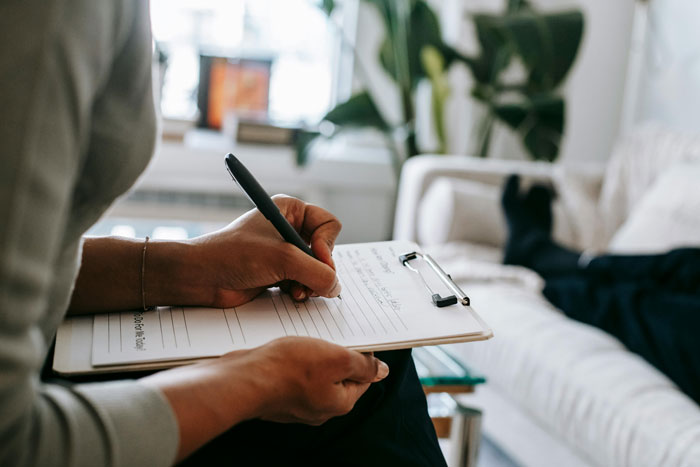
Image credits: AvalonSummer
So what did the author think of the replies to their post? "Most of them were interesting; you obviously have to take them with a grain of salt since it's all anecdotal evidence, and there's no way to confirm anyone's credentials," they told Bored Panda. "There's a lot of anecdotes that sound plausible but could easily just be pop psychology or gender stereotypes."
#7
In most couples i saw as a therapist, the woman wants to feel emotionally safe while the guy wants to be appreciated for what hes doing
Also most men dont seem to identify getting angry easily as emotional and only think crying is emotional.
More men asked if they could be put on medication and women preferred talk therapy.

Image credits: TacoBell__enthusiast
#8
I am a therapist who specializes in attachment trauma and I use a style of therapy called internal family systems/parts work (imagine the Pixar movie Inside Out but instead of emotions vying for control they're different 'parts' of you). As some have said above, there are often less differences than one might assume, but a big difference I see in parts work is how comfortable people are interacting with different parts. With my caseload I see my female clients doing a great job of showing love to the youngest version of themselves (3-6 year olds) but really struggling to show curious compassion to their parts once their parts are in their teens and early 20s especially if sexual abuse is involved. With my male clients, they struggle to accept that their young parts need love and attention, but are a bit better at listening to the needs of their teen parts. But this is a big generalization and every case and client is different.
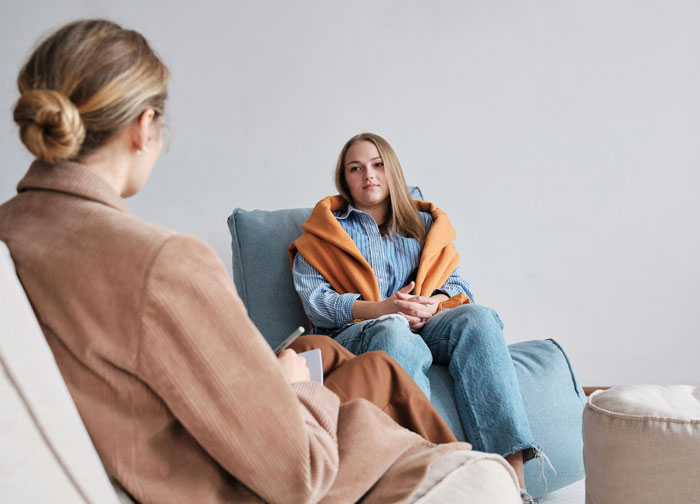
Image credits: gyakutai
#9
I work with foster kids aged 2 - 18, therapeutic mentoring and placement stabilization
Up until like 9/10/11, there are no discernable differences. Preteen girls are more likely to seek control by refusing to see me or talk to me, preteen boys are usually thrilled that I'm taking them out of the house. Meanwhile, teen girls are usually thrilled to have someone actually listen to what they have to say and are very open, while teenage boys will seek control by trying to make me uncomfortable (they get weirdly sexual, make inappropriate jokes, or are mean).
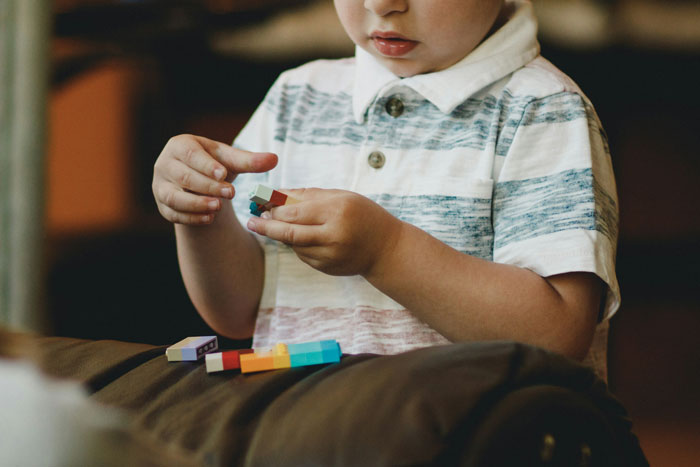
Image credits: Aurelene-Rose
"But anecdotes are the first step to forming a hypothesis, and I would love to see conversations and research about what types of therapy work best for different people," the OP continued. "For example, there's a popular (but unconfirmed) theory that men tend to favor a 'side by side' style when communicating, whereas women seem to prefer face to face communication where both parties are sitting across from each other and facing the other person."
"Therapy is almost always face to face. If that's true, could therapists benefit from making small differences in the way they engage men during therapy? I'd love to see that subject explored," they shared.
#10
My male clients come to therapy wanting solutions, action, structure, and for me (a woman) to tell it like it is. Over time, we almost always end up going very psychodynamic (lots of talking, open ended guiding questions, raising awareness of relational/childhood stuff, behavioral patterns) and processing the deeper stuff that they didn't think was relevant or no one gave them space to talk about before.
My female clients are very high performing, controlling, perfectionist, burned out, and trying to perform therapy and healing in a perfect way. Over time, we end up working on self acceptance, processing anger, boundaries, values-driven action, self image, and raising consciousness on gender roles and capitalism. And actually *feeling* the emotions in addition to labeling and analyzing them.
Edit: to add, my female clients are often very self aware when they meet me. They know their experience, their emotions, they know how to talk about it. What they need help with is a safe relational connection (a therapist) who can gently challenge them to really be honest with themselves. Growth doesn't happen without some discomfort, so we build tolerance for really looking at the self and barriers to change.
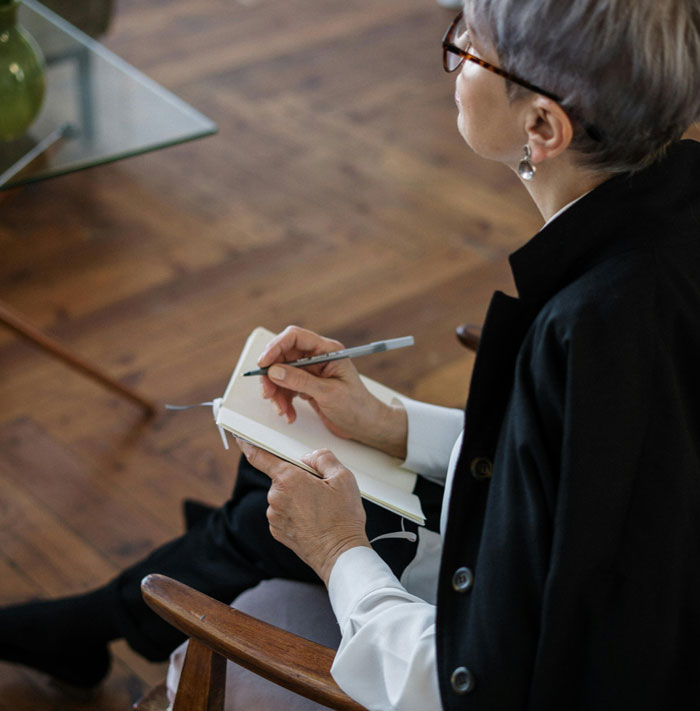
Image credits: TheDuckSideOfTheMoon
#11
I work with a lot of college students and guys always take break-ups much harder and are more likely to cry about them .
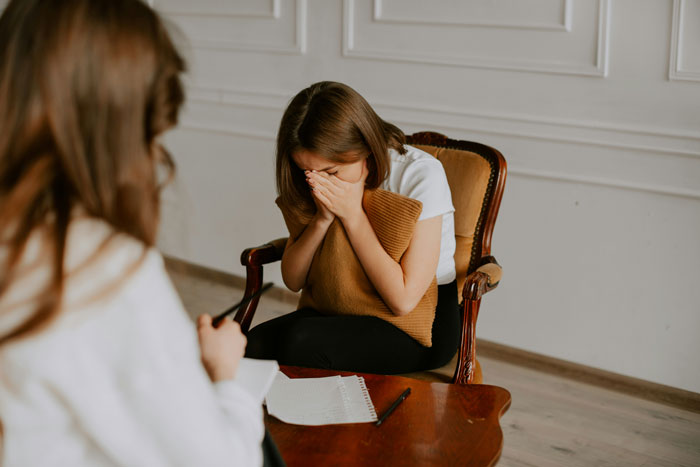
Image credits: LampsLookingatyou
#12
Female patients usually apologize for crying, male patients usually apologize for having emotions at all.
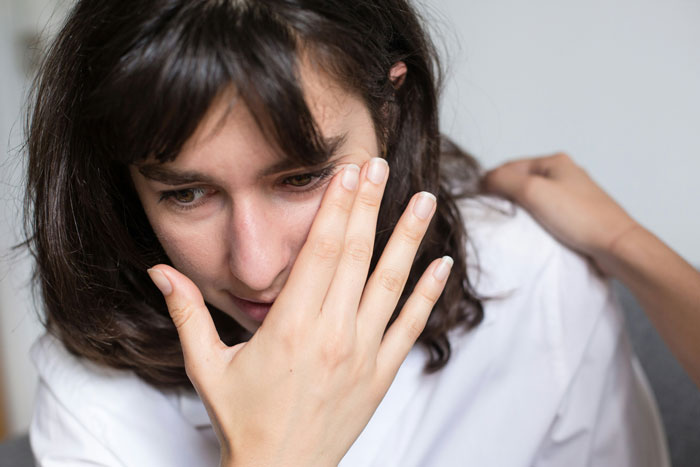
Image credits: Traditional_Sun3135
The author also says that the most interesting anecdotes they read were about trans people. "Their experiences with processing emotion and how that conflicted or meshed with their biology and/or socialization," they explained.
"There was also a general consensus that the differences between men and women were smaller than the differences between other demographics, particularly age groups," the author continued. "In the words of u/Much-Space6649; 'When you break a human so much that it is reduced to its core, all that is left is a miserable bag of pain and hate, and the way it reacts does not care what gender society thinks it is.'"
#13
Not a therapist but i give Mental Health Assessment.
Mostly, men are not intuned with their emotions and it would take some time for them to acknowledge said changes and some would even deny it while women are more aware and would readily acknowledge and accept it.
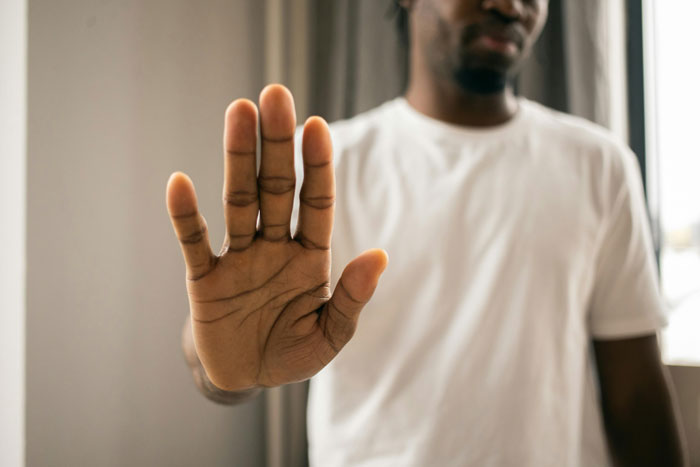
Image credits: Darling961215
#14
Men will whisper “I’m not sure if I’m allowed to feel sad” after getting hit by a metaphorical train. Women will apologize to the train.
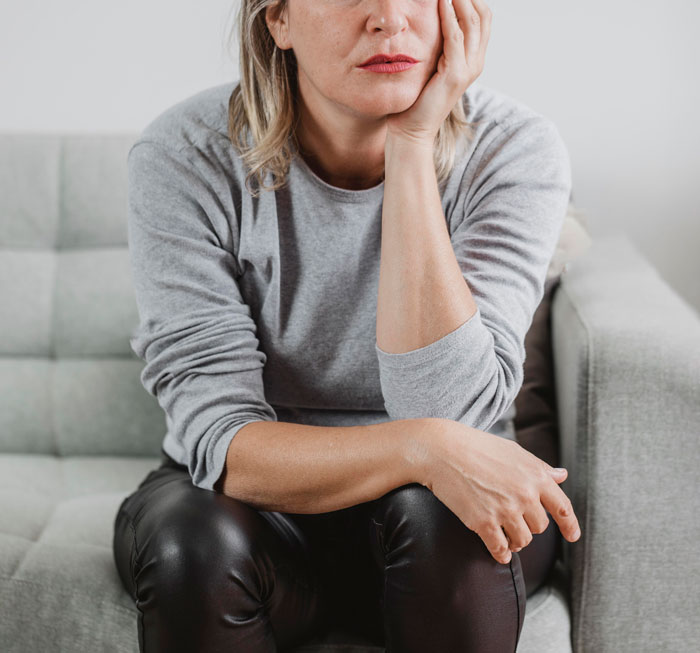
Image credits: Brief_Buffalo4784
#15
Gendered problems are quite common among my clients - or at least feature heavily in their clinical needs.
I've seen women whose life problems are frequently attributable to beliefs, events, and relationships that are derived from patriarchal society. Or women who struggle with making friends because they find it difficult to deal with the prevalence of social aggression in female friendships (particularly autistic women). Some also tend to overgeneralize their (reasonable) fear of what dangers men pose to them into avoidance of men even when they want to be in a relationship. Some struggle with the attractiveness expectations towards women, either by failing to meet them and having the body image/self-esteem consequences, or by succeeding and then finding it difficult to navigate the consequent objectification by men (and women) in their lives.
In men, I've seen problems related to loneliness (lack of meaningful friendships), difficulties/disinterest in expressing emotions (to friends/partner), callousness in romantic relationships and views of women (likely encouraged by the manosphere internet), and fears of being a burden on society and their families (often reinforced by their wives or girlfriends' pressure on them). Some men's overgeneralized negative views of women (e.g., "they're too stupid/materialistic/shallow") lead to their problems in relationships across their families, friends, and partner.
So this is nothing we haven't already seen on the internet. But these gender wars play out in the therapy room too. It's unfortunate because it's obvious how the systems in place create these problems, but there's not much we can directly do as therapists to treat the source. All we can do is help the individual develop skills and attitudes that buffer them against the worst of this.
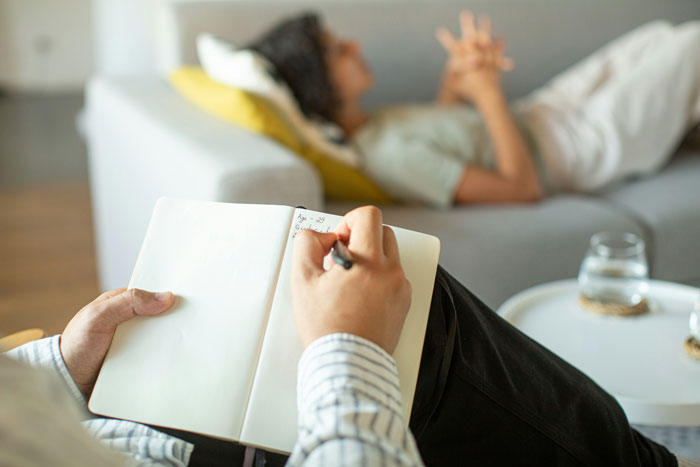
Image credits: yup987
#16
Therapy intern here! One of the biggest differences I've noticed is how anger is presented.
Many women I work with often feel this repressed anger that they deny themselves until it explodes out from them or they're completely unaware that they have an anger problem. They may also deny the expression of anger for fear of being labeled "sensitive" or "hysterical"
Men, on the other hand, are conditioned that anger is the ONLY emotion that they are allowed to present so they often deny the depression, anxiety, and other negative emotions that inform that anger. Or they're so afraid of becoming like the other angry men in their lives that they deny themselves the expression of anger at all.
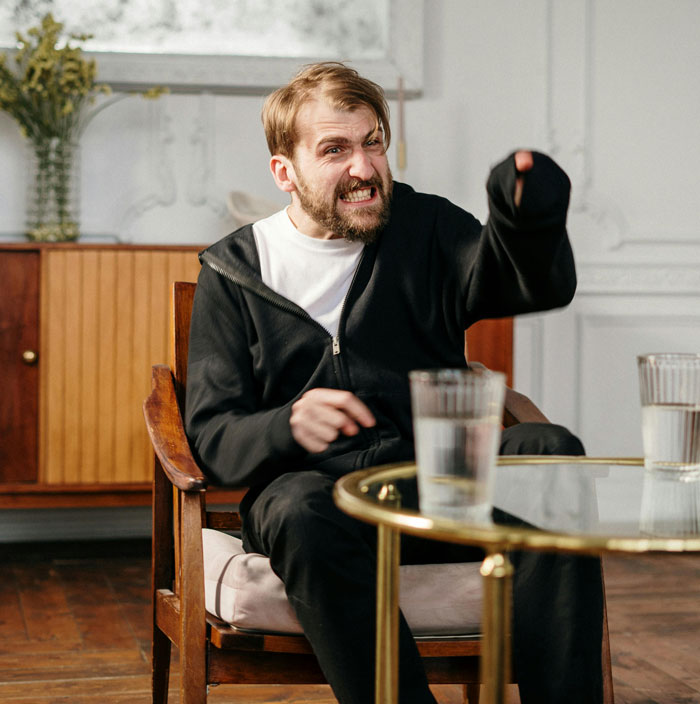
Image credits: bun_daddy
#17
Hope someone sees this, it's been a few hours!
Clinical psychologist here! I work with trauma, anxiety, depression, eating disorders and sleep disorders in adults and older teens.
I do find the differences to be fairly consistent with gendered socialization- the men I work with often need a lot more coaxing to allow emotion into the room, rather than keeping things intellectual, theoretical, or prolem-solving. They tend to freeze up when strong emotion appears, and very often I can tell their default relationship with strong emotion is shame, or general "DO NOT WANT." Working through that relationship to emotion has to come frst.
I find that with many of my female clients, too, but always with a history of trauma. Oh, you had to absolutely go flat or else your drunk father would pick a fight with you? Cool, no wonder it's hard for you to emote in session. With the men, it's just their default, trauma or not.
I think that tells us a lot about what society teaches little boys from an early age. It makes me think of that bell hooks quaote (Im' paraphrasing): "The first act of violence boys must do in patriarchy is self-mutilation of the emotional self."
In addition, the trend absolutely holds that the women in my practice tend to be more anxious and more self-doubting, and more concerned with weight, shape, and general likeability. They look to others' opinions to define their worth, or even their own opinions. Again, some men are this way too, but typically after a more explicit trauma from a male caregiver. Their default is more confidence. For women, I see this crippling sense of not being good enough nearly across the board.
This makes perfect sense to me- in patriarchy, women are not granted equal rights, equal ability to earn and maintain wealth independently, or the ability to engage in civic life and contribute to outcomes for their society. So women have, generation over generation, depended on others (men) liking them for sheer survival, or to have any control whatsoever about their circumstances. Finding a partner to marry and reproduce with, or at least a group to accept you, would have been a matter of life and death, or at least of being impoverished or not. So the effort to be attractive to others, especially men, is a matter of ingrained survival, not just "being shallow." I see that surviving to this day, even in women who otherwise, intellectually, hold feminist values. Or who, in their current life, could actually build wealth without a man. But jsut because it's changed for this generation does not erase the cultural teachings and epigentics that have been handed down through the generations. It tears these otherwise smart, loving, capable women apart to be constantly bombarded with thoughts about not being good enough, pretty enough, safe enough, etc, when they wish they could be more focused on other things.
In line with that, I see a trend (but not a rule) that women are much more likely to blame problems on themselves, and fear, guilt, and shame are primary to show up in interpersonal conflict. With men, anger tends to show up first. I assume this is in part because boys and men have typically not been permitted to be vulnerable (I'm thinking of one of my most beloved clients right now, with whom I've discussed his experiences of shaming at the hands of all of his caregivers for signs of weakness.) I think it's ALSO, at times, because men do truly feel more confident and more entitled to their own opinions, as society treats them as full human beings with their own complex, important thoughts. This has often been condescendingly stripped away from girls at an early age, who have been othered, put in a box, objectified, or outright belittled. So women are less likely to jump to anger, because they question themselves too much. How can you be angry if you're not srue you're right, or if your opinion even makes sense?
There are more, but this is what just came to mind! A bit rambly. Happy to answer any more specific questions.

Image credits: WhyAreYouUpsideDown
#18
As a therapist, I’ve noticed that men and women are all individual, unique human beings who can’t be pigeonholed based on gender.

Image credits: sagittalslice
#19
From what I’ve seen shared, a lot of male patients struggle more with opening up emotionally, while female patients often carry the weight of emotional labor for others. Both are dealing with totally different pressures but it’s heavy either way.
#20
I dated a s*x therapist. She said that if a couple came, it was generally that SHE wanted him to read her mind, and HE wanted an instruction booklet. If it was a single guy who was 40 or 50, he wanted his d**k to act like it did when he was 17.
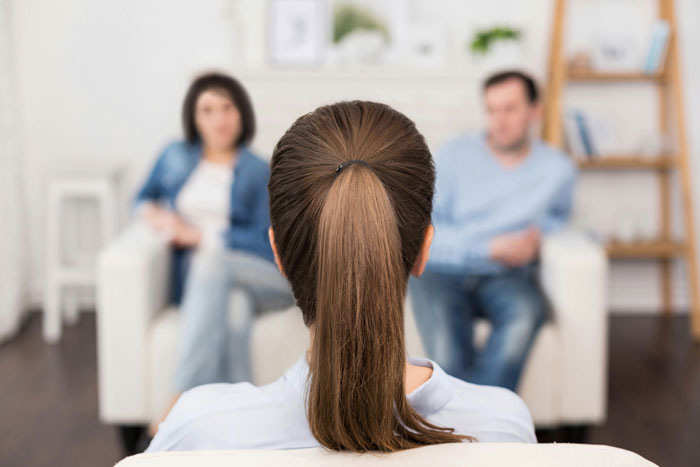
Image credits: Striking-Phrase-8695
#21
Men tend to have smaller support systems, if any at all.

Image credits: ryokansmouse
#22
I have worked with children and adolescents in both hospital settings and outpatient community mental health centers. I’ve noticed a SIGNIFICANT increase in teenage and pre-teen boys with s******l ideation and intent in this past year. Girls I’ve noticed a good amount of anxiety, especially social and performative.
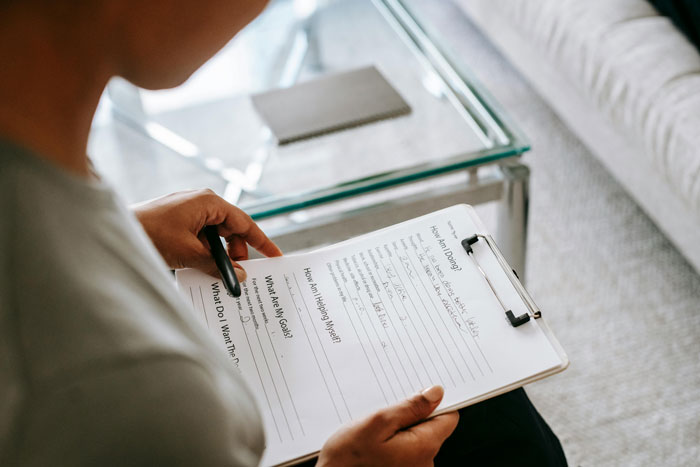
Image credits: Wonderful_Aioli_7368
#23
I work with kids in play therapy. The boys will have a lot more aggressive and competitive play, sword fights, battles, and games. They are more comfortable showing angry feelings. Girls will have more nurturing, and relationships play like doll house, babies, and family scenarios. They are more likely to show sadness. And other genders will have a combination of both. Though, I have not worked with many non binary kids in therapy.

Image credits: Fantastic-Peace8060
#24
Female patients often arrive more comfortable expressing emotions and discussing interpersonal issues. Male patients may take longer to open up emotionally, sometimes framing issues in more "practical" or action-oriented terms.

Image credits: Plastic-Fig4710
#25
Women tend to express more self-criticism than men.

Image credits: Pure_Cucumber_5323
#26
Honestly fewer differences than you’d think. Men tend to be more comfortable going to anger than women, and tend to have less of a support system and less openness about their mental health with people they care about, but that’s more societal conditioning than a hard truth about the gender. I often find men to be more attached to romantic ideals than women, paradoxically.

Image credits: icecreamfight
#27
I treat people with cooccurring substance abuse and mental health issues. After 20 years, I don’t think that I could really say. Everybody has underlying issues that drive behavior so if they have trauma or a personality disorder or an anxiety disorder, everybody presents in a different way. It’s not really specific to gender. It’s based on your history, your coping skills, your insight and judgment into what’s going on.

Image credits: Medusa17251
#28
In my experience as a therapist, I’ve noticed some common gender-related patterns that show up in the people I work with. Of course, everyone is different, and I never assume anything based on gender going into a session. These are just trends I’ve seen play out over time.
My male clients often struggle with their sense of self and masculinity, especially in relationships. There’s a lot of pressure tied to being the "provider" or "the emotional/stoic rock" in the relationship. Many were raised to believe that their value (or what they provide) is based on what they can materially/financially contribute, not on emotional presence. Vulnerability is often uncomfortable because they weren’t given the language or space to express it growing up.
A lot of men also fall into what I call the "Mr. Fix-It mindset." This is the idea that if they fix the problem, then the emotions around it (their own or their partner’s) will go away and everything will be alright again. On the surface, that might seem logical, but it’s often a way of avoiding emotional vulnerability and deeper connection. Again, this usually traces back to socialization. Emotional avoidance gets praised in boys as a strength, and that follows them into adulthood.
I’ve also noticed that some men struggle with accountability in a unique way, not by avoiding it, but by over-accepting it. Some will take on all or most of the blame in a conflict, especially with a partner, to smooth things over and avoid further confrontation. On the surface, it looks like responsibility, but often it’s a way to bypass the emotional discomfort that would come with a deeper conversation.
Anger tends to be a more acceptable outlet for many men, which makes sense considering how they were taught to express emotion. So a lot of the work is helping them expand their emotional vocabulary and get more comfortable with being vulnerable. I also tend to reframe terms like "toxic masculinity" into something more approachable, like "limiting masculinity." That tends to land better and creates room for growth without defensiveness. Pointing out ways in which their masculinity, or how they see themselves, has been limited (such as with many of the examples above) helps them to reframe their experiences as men and makes them want to actively challenge them. Also, that's what "toxic masculinity" is in essence: a way to limit masculinity to one specific ideal, which is enforced by society at large. It probably helps that I’m also a guy, so there’s a sense of shared experience.
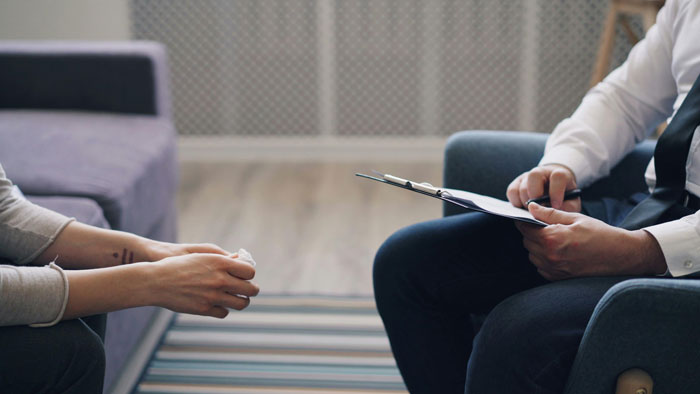
Image credits: InquisitiveGuy92
#29
Differences are many, but I find this a difficult question to answer because there are as many differences between different men and women as there are between the sexes.
But off the top of my head - women have been the ones delusionally clinging to unhealthy relationships; men have much more often been aggressors; men devalue social needs; both equally want to be heard (most people prefer to talk in therapy, even those who are generally quiet).

Image credits: singingpunters
#30
Family lawyer here, not a licensed therapist BUT I think I can add to this in the context of divorce since I essentially act as a therapist and safe space too.
1) men cry alone, women cry as a group - I've noticed that all the men come to me as a last resort, when they've tried to solve the problem on their own (usually after years of being oblivious and/or ignorant). As a man myself, I often feel for them and understand where the miscommunication was (but sometimes it is just a lack of emotional intelligence and/or complete disregard for the emotions of others). Women have almost always come in groups with friends or family, and almost always have support from so many angles. I rarely see a female client suffer through a divorce or separation privately (in fact, I've had a few who, after 10+ years of marriage, cheat within a few days of separating). Maybe it's a societal thing but strictly speaking about emotions, I noticed that men tend to suffer longer and harder.
2) women's story telling is flowery and interesting to hear, men can't communicate accurately, but we all suck at being objective- from my experience, women will give me all the details of specific dates and storylines, making it sound very real, whereas men, when I ask for details, usually give a fluffy answer that amounts to "i can't remember" or "I don't know". The most interesting part of their communication style is that both men and women SUCK at keeping stories straight: I give a write up to the other lawyer, and the other lawyers will give me a write up of their client's side. Nearly 100% of the time, when I read the other lawyer's write up, there are gaps in the story, and my client will say "yeah that happened but they are twisting it". When I question the absolute facts and cut out the emotional side, more often than not, the answer is "yes that happened". Scary that the human perception can distort facts like that
3) women tend to pay money faster, men tend to pay more - women tend to want results faster, they pay quickly to start the process, and don't question if I ask for more money down the line. Since, unfortunately, the family law landscape is usually women open up the divorce and men defend it, the men are hesitant to pay multiple payments without seeing results. Having said that, as an average, women's cases tend to last longer since they tend to ask for more as the case goes on (child and spousal support, more accommodations and property), but a very sad story I hear too often from men is this:
"I've lost my kids, my house, my love, my family, my life... Please don't let me lose my income too..."
They will pay A LOT more money to stop their ex wives from going after his income. I've legitimately had male clients tell me that if they had to lose 50k, they would rather give that to me than to their ex wives.
Just a few observations... Even though I'm not a therapist, I hope my perspective was valued here! Feel free to ask questions :).
#31
Not a therapist, but a researcher & deliver some lived experience consultancy for services & education. A high difference but sadly poorly recorded difference is the diagnosis given, which is often heavily influenced by what demographics a person fits into. It goes deeper than just male and female, it is also things like socio-economic, age and ethnicity. The diagnosis then impacts on what therapy a person is assessed as needing and what therapists will see them.
I’ll give you an example. White women of middle class backgrounds who have made s*****e attempts and self harmed are much more likely to be given a diagnosis of Personality Disorder. It is the most stigmatised of diagnoses in mental health. Psychiatrists don’t like treating them because medication does not help, mental health staff often feel the same and treat them poorly, most therapists feel too unskilled to work with them and ‘specialist’ therapists are often very aware of their ‘specialist’ status. Trust me, I’ve worked with them. New research is showing that there are likely to be many people with misdiagnosed with BPD who are in fact Autistic. PhDs exploring this area are also being funded.
Women are much more likely to attempt s*****e but the methods they use tend to allow for a higher chance of survival than men who use more violent means and die on their first attempt. Women who make multiple s*****e attempts are more likely to die. Their repeated attempts are often described as ‘attention seeking’ by mental health staff despite this.
As for the ethnicity of personality disorders, I am on the board of a research group and the annual conference we hold is one that people say is one of the whitest you will see: people drawn to the field reflect the demographics of those given the diagnosis. 20 years ago Mike Crawford et al found 14 research papers focussing on ethnicity & personality disorder, in 2024 Gary Lamph et al (incl me haha) found 10 spanning the last 20 years. https://clok.uclan.ac.uk/id/eprint/48944/
Other diagnoses differentials include Black men and women being more likely to be diagnosed with some form of psychosis, with Black men more likely to end up in secure wards or prisons compared to white counterparts. Black and Asian people often have different needs in approach and education on issues that they face which some therapists don’t understand and will impact on the quality of treatment they give.
Women in prison are another taboo subject all on its own, often viewed as perverse because they have stepped outside the traditional female role, but I’ll stop there…
Oh, and therapists love people that can come to 6-12 sessions of CBT of either gender and have issues resolved. It makes them feel better when other people feel better.
#32
For context, I am an LMSW out of partial hospitalization program, which is a step down from the acuity of inpatient, so the clients we serve are in crisis/coming out of crisis. I speak in generalities here, of course, but because you asked the main differences I have noticed between male and female clients is two fold.
1. Men tend to express internal emotional conflict, externally, often through impulsive, disruptive, risk taking behaviors, rather than verbalizing or processing the emotion itself. Some examples of this are yelling, sabotaging relationships via violence, being aggressive, engaging in substance use, and engaging in reckless behaviors, breaking rules, etc. Women on the other hand, tend to turn emotional distress inward, often through withdrawal, internal self criticism/self suppression rather than expressing their needs or feelings outwardly. Some examples of this are: internalizing anger, and self blame, withdrawing from relationships, experiencing somatic complaints, like headaches and stomach issues, and engaging in self harming behavior, and experiencing eating disorders.
Thus, men tend engage in acting out behaviors when struggling in women tend to engage in acting in behaviors.
2. Along a similar vein of thinking, men tend to externalize blame. This can be shown in anger, defensiveness or blaming others as a protective mechanism. This can look like irritability, criticism of others, and avoidance denial of responsibility. This is because traditional social and gender norms often teach men to suppress vulnerable emotions like sadness or fear. Anger is an emotion that has been socialized as acceptable and masculine to express for males. Since women tend to internalize blame, and have been taught to prioritize relationships and harmony, women often self blame, experience a lot of guilt and shame, in over personalize conflict. So women engage in negative self talk, rumination, and try to fix things even when they are not the one at fault/the situation is unfixable.
Thus men tend to look to someone something else to be the root of the problem, and women tend to view themselves as the root of the issue, even when situations/relationship/life, etc. is very often more nuanced than either/or.
Again, I just want to say this is extreme over generalization and there are certainly women who externalize and men who internalize. This is simply my own attempt to utilize pattern recognition to answer your question!
#33
Unpopular opinion on Reddit, but--
A*****e relationships tend to fall into two types: coercive control (traditional domestic violence) and situational couple's violence. Women tend to downplay situational couple's violence, and men tend to be naive of the severity of traditional DV/coercive control.
Situational couple's violence can look like a power struggle involving aggression from both sides (although one may be worse than the other.) It's pretty common. It can escalate into mild to moderate injuries. It's usually triggered by stressors, communication, or mental health problems. It's unusual to result in PTSD. In the presence of severe mental illness, the power struggle may involve aggression only on one side, with the other side trying to gain control out of self defense or concerns for the other's safety. Serious injuries are rare but do occur, but they are always unintentional- think shoving the driver's shoulder causing them to swerve into a tree.
Coercive control involves dominance of one partner over the other through the use of systematic violence and psychological abuse. PTSD rates are double what is seen in combat veterans. Abuse is cyclical. As it escalates, common behaviors include repeated near-death strangulation, TBI, killing/t*****e of pets, constant surveillance through cameras and trackers, and eventually, murder (of either partner).
Women have a slightly higher rate of violence within situational couple's violence. In straight, able-bodied relationships, the perpetrator is almost always male. It's not that women aren't capable- they're perpetrators in same s*x relationships, and when the male partner is disabled. It's more due to practical concerns- bearing children, physical size, lower income. Able bodied men can usually wrestle away a gun if the partner is hesitant to use it.
EDIT: I hope this explains why DV shelters focus on women. Unfortunately, DV/coercive control is really common, too. Most women know someone who has been in a DV relationship. Many are lucky enough to leave before the man gets as escalated as above, but the emotional scars run deep either way.
#34
In general everyone hates feeling/expressing their emotions. Men's emotional comfort zone is anger and have difficulties with sadness. Women often have difficulties expressing anger due to stereotypes/double standard/internalized misogyny, etc. Universally, people are too hard on themselves. ✨️🌈.
#35
This isn't the case for everyone, but I tend to notice that men are slightly more likely to tell me the important stuff in the last 10 minutes or walking out the door. They want to talk about the thing that's bothering them but can find it hard to do, so they do it at the end when there isn't too much risk of me asking too many questions and exploring too deeply, or else they just need more time to feel comfortable enough to say what's really on their mind.
When I see people whose problems are around caring for everyone and not having an identity outside of the role they provide for others, the majority of the time they are women (but not all the time).
#36
I'm a school counsellor (work with 5-18 year olds) and trainee psych. We've noted through our stats that boys are more likely to be referred to me for behaviour issues and girls are more likely to self-refer for help with mental health and friendships.
For my long-term kids, what we talk about ends up being fairly non-gendered. It starts off based on their presenting issues but deviates over time.
We have such a good relationship with the kids as a whole now that when I go to collect a student from class, I get 'Miss B, is it my turn!?' and many, many self-referrals in the playground! I hope we can continue to normalise getting help, all the boys who see me love doing so, I hope it carries on through their lives!
#37
Not a therapist, but a neuropsychologist. This is one of my favorite topics and would love to give some of my insights, albeit in a different field
Regardless of s*****e rates, women are twice as likely to have major depressive disorder than men. On the other hand, men are twice as likely than women to become alcoholic or d**g dependent.
Women are constantly thinking, often times this results in them thinking their way into a spiral and hurting themselves. Men still do this but not nearly to the same extent as they have a much easier time shutting off their brains and being able to live in the present and in the physical space.
Men are much more willing to fight for their goals while women are much more likely to fight for their relationships.
Women express anger through words. Men express anger through actions
Men are much more assertive and confident
Women are able to recall emotional memories faster and with more detail
Women read emotions, behavior and facial expressions better than men.
Men have a more active right amygdala which is the cause of them being more active and reactive
Men overestimate their abilities. Women know their abilities
When men do something wrong there is a better chance of it being an honest mistake, when women do something wrong it’s usually purposeful.
Women will ruminate on negative emotions or experiences, men distract themselves.
#38
Women are worried about inconveniencing me. They often ask how I am and want an answer, they remember little personal things I mention (like that I have cats or I went on a trip). Men have no issue taking up space in session, they do not care how I am doing. I don't generally see these differences as good or bad, but they make a lot of sense when we look at how women and men are socialized.
I have seen men use therapy, in my personal and professional life, as a weapon. Weapon. They think that going to therapy makes them better than other men, even if they're not really participating. Or they use it as a place to try to justify their behavior. I've also often experienced men using my captured attention as a therapist (I'm a woman) as a place to debate dating or sort of talk down about women. It's a little hard to verbalize. And it's not all of my male clients. Some of my male clients are extremely lovely people.
#39
Men often take longer to open up, while women tend to share emotions more easily.
#40
Men want that s**t done fast. They’re like “so we talk about this puss stuff for three months and then my wife will love me again, right? Even though she’s a lazy f*****g slob?”
Women tend to have society suppress their rage and anger and most of them at some point are like, “I didn’t know I was so angry. I wasn’t allowed to feel angry as a kid”
That’s after weeks or months of them describing anger as “frustration”.
#41
When I worked with reactionary victims of abuse I actually came to understand there was no difference. When you break a human so much that it is reduced to its core, all that is left is a miserable bag of pain and hate and the way it reacts does not care what gender society thinks it is.
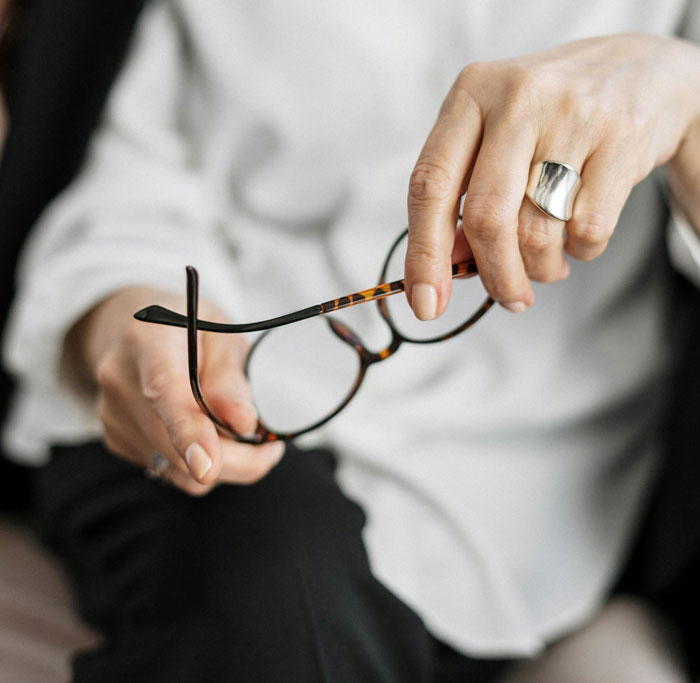
Image credits: Much-Space6649
#42
I noticed my transfemme folks typically don’t feel like they have to “prove” their identity to me in the way my transmasc folks typically do.

Image credits: nonb1naryn3rd
#43
I feel that a lot of my woman patients get outwardly overwhelmed in for example crying of have complaints of exhaustion. While men are either saying nothing or being angry when that happens.
Withing autism i feel that woman are just more overwhelmed by society and withdraw as An effect. While men attribute ill Will more. X looked at me that way, did this to annoy me, things this about me,... While most of there social interaction van be explained in way less hostile manners.
#44
Men for my practice were much harder to work with. I am also a man and sometimes it was unnecessary power struggle. I had one man who was actually angry at me for telling him things even though he paid for exactly that. Emotionally men are way more like rocks and it takes more time to let them open up. We had to have many sessions to just get to part where you open up and understand that feelings are valid response to things happening to them.
Women were much easier. They are far more connected to their needs.
It does not apply to all thr cases. I had very emotionaly open men and closed up women. But the trend was very visible. Especially with older generations.
#45
The biggest difference is my female patients process trauma more intensely then my male patients.
#46
I love working with men! These are purely anecdotal of course, but:
- Men lie to me more - downplaying a*******n issues, infidelity, etc.
- I specialize in men with anxiety. They often present with primarily physical symptoms and are reluctant to call it anxiety.
- They come in looking for a “fix”. The benefit is that they also tend to do more work between sessions than women do.
- Unless their childhoods were extremely traumatic, men struggle to identify things that didn’t go well growing up. They often say they “had a good childhood” and then later reveal something pretty sad or hard that happened. Even then, they often brush it off as no big deal.
#47
I’m a therapist and I do psych assessments- one of the most notable things is the difference between how adhd and autism look in men versus women. Women are much more likely to be later diagnosed, and with that they’re more likely to present with anxiety and depression. The anxiety forms to try to compensate for areas of difficulties, the depression comes from feelings of alienation (generally).
I’ve also noticed what others have already mentioned- men have an easier time accessing and expressing anger while women have an easier time with sadness. A decent amount of what I do is helping the person access the one they typically can’t.
#48
Men do not understand their own experience with anxiety. I’ve had men sitting across from me practically vibrating and vehemently deny they have anxiety.
#49
Working with males (in the UK) is often significantly more difficult because basically they just don't "get" how to be a client in the same way a female does. So you end up spending a lot of time and effort focusing on building rapport more and letting them learn how to express themselves in a way most just simply haven't done or ever even thought was a thing before.
But the work when it's successful is very rewarding.
#50
Women never once use the word "males".
men with OCD tend to get upset with themselves if they are not using the skills they are theoretically supposed to to cope. like they add it to the inventory of things they think they should have control over.
regarding dating I generally have to advise women that they need to be very specific about their wants and expectations of how they will be treated. this is probably because most of my caseload involves trauma work.
with older generations, unsurprisingly men have a much harder time opening up and are significantly less open to any input from me.
Here's the big sad one : when women are s****************d, whether as children or adults, their families tend to be weird about it even when they were not the ones who caused it or let it happen, and then in a lot of ways they tend to take it out on that person. Blame them sometimes.
The reason for this by the way is that people don't want to confront the idea that they live in a world or something so horrible could happen to someone they care about. And this vicarious trauma reaction often becomes something the original victim has to learn to manage and navigate, especially when we're talking about kids.
#51
I find that when identifying & expressing emotions, male clients more often check my reaction as though they are checking to see if it’s okay for them to be having the emotions or if I’m going to dismiss them.
Female clients seem to be much more certain that I’ll be accepting of their emotions and supportive.
#52
Women tend to want to be understood, even without proper communication. Men tend to want to be understood, also without proper communication. I see more women than men who are worried about not being in a relationship then men until around age 50 and then it's COMPLETELY reversed. Men's anger is usually insecurity and anxiety while women's anger tends to be more that others don't understand, respect them, or treat them differently JUST because they are a woman. Men with trauma and women with trauma handle it VERY differently.
There aren't a ton of differences honestly. Everyone has s**t they have to deal with.
#53
Lcsw- Men tend to want solutions quickly without necessarily getting into the nitty gritty of things while women want to work through things and get to the bottom of the issues more often.
#54
In adults, it always has to be the man's idea. 9 times out of 10 you just keep repeating the same advice that they ignore until they come in one day and say "You know what I was thinking? I should really {insert professional advice you've given countless times}
Source: practicing behaviorist for 19 years, and a man.
#55
I find my male clients will meet with me even when there’s nothing pressing to discuss just so they “have someone to talk to.”.
#56
Most men’s sense of identity comes more form their job than it does from their relationships, including their spouses and children. They often feel completely lost and lonely when they retire. Women on the other hand, no matter how successful they were in their own careers, rarely have this problem anywhere near the same extent.
#57
Different coping strategies, equal in destructiveness. On a deeper level mostly the same honestly. There are more differences between generations then between sexes imo.
#58
I was a therapist for people with psychosis and schizophrenia, if that counts?
Men were more likely to have delusions about God. (I am God, or God speaks to me)
Women were more likely to have romantic delusions.
(Michael Jackson speaks to me, I am Maria and I am miraculously pregnant)
Both had pretty much the same amount of dissociative problems. (This world is not real, people are replaced by zombies, you are not my mother).
#59
I’ve noticed if a man comes to therapy without being pressured by a woman in his life, he tends to be very invested and gets “the work” done quickly.
With women we usually have to work on perfectionism before we can do anything else. They want to do therapy perfectly.
#60
In my experience, men are way more likely to meet me with a hope that I will “fix” them. They want to be told what to do. Some get so frustrated that they aren’t getting “answers” right away that they just stop showing up (or in extreme cases, they may actually act that frustration out onto me).
I generally need to try to help them understand that they need to be the ones to decide what to “do,” and that they can only do that by practicing the skills of identifying, sitting with, and curiously exploring the roots of their feelings.
#61
I work with a very specialized patient population, but the biggest difference I see is that men come to therapy for the first time ready to WORK. Some women and non-binary people do too, but with men, it's almost universal. This doesn't necessarily mean men have an easier time in therapy, or that they don't get resistant - in fact sometimes they're the most resistant to change. But, my theory is that since we socialize women to talk about their feelings, but don't socialize men to do the same, and vulnerability is culturally seen as weakness for a lot of men, women/enbies are more likely to go to therapy, whether they're ready to get better or not, because it makes sense for them to talk to someone about their problems. By the time men are at the point where they're hiring a professional to talk about their problems with, they know that they are going to have to get uncomfortable in order to resolve whatever brought them to therapy.
#62
I think men often struggle more with identifying and expressing emotions while women tend to be more comfortable discussing feelings but sometimes over-analyze.
#63
That men go through a lot of stigma in terms of expressing themselves, citing themselves as more ‘feminine’ or ‘soft’, which isn’t always the case because they can still be masculine and express themselves. The society has f****d this up for them and I feel bad for them for that.
In addition to that, men tend to lie a lot too, especially when they have a partner who recommended them to go to therapy. They lie not because they are chronic liars, but because they want things to be done perfectly. .
#64
Men present with more “crisis oriented” concerns (ie, when they’re absolutely at the end of their rope), and are much more likely to just terminate therapy once the acute symptoms resolve. But I’d say about 80-90% of people who seek therapy are women.
#65
Men really come for psychedelic therapy. Id say 85% of my "regular" therapy clients are women. Not because I dont see men (I absolutely do!) this is who seeks me out.
But for psychedelic services? It is all men and they are VERY bought in and ready to work. They have done reading, listened to podcasts, come in with lists of questions. When they hear the science, that we will monitor their progress and constantly be evaluating how it is going? All in. Women (generally speaking) appreciate the process of therapy and are a bit more patient with themselves and the process of healing. They do not mind if it is slow, take opportunities to go "off course" when the need arises due to life stress and are more comfortable in the process (generally speaking)
I love it when men come into therapy. When they start to relax and connect the dots...that the relationship experience can be really valuable and it is ok to be upset at the way their labor has been objectified, stripping them of their wholeness? It is such a privilege to be in the presence of that learning and growth. It is like you see light turning on for them. Women often come in with comfort in relationships. Trust is always hard to gain with professionals and new people, but women dont struggle as much with it.
One thing I will say is that when you get comfortable with people and in their process? Gender differences can be less pronounced. People are people, on the inside. We all grieve, rage, feel joy...I know when we get to those places...where identity starts taking a back seat during sessions...we are getting somewhere.
I really, really love my job.
#66
I worked exclusively with adults. I can honestly say I saw no discernable difference based on s*x alone.







